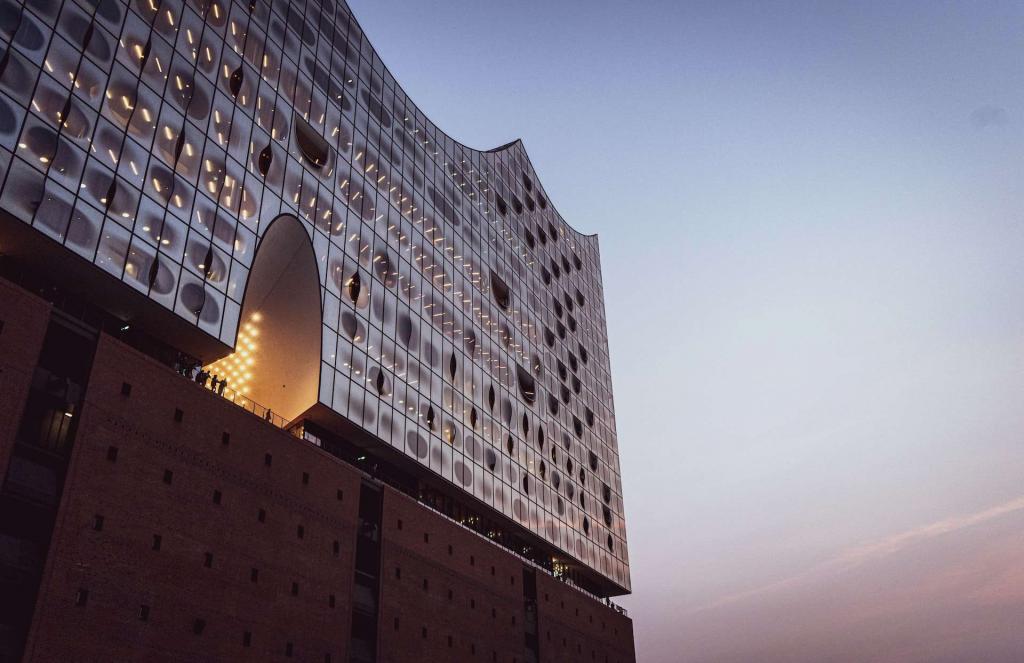Thessaloniki gets ready for its metro launch in November
The underground rapid transit lines have been under construction for almost two decades due to various project delays
 TheMayor.EU logo
TheMayor.EU logo 
The Elbphilharmonie is one of Hamburg's most famous buildings and of the top 10 tallest buildings in the city, Source: Tim Hufner / Unsplash
The city will try to build upon current expertise and establish a dedicated Hamburg Quantum Computing School
Yesterday, Hamburg authorities announced a new package of measures to fund a quantum computing ecosystem in the city. The authorities will provide around 34.1 million euros between 2023 and 2028. According to a press statement, Hamburg has a leading role in Germany when it comes to building the next generation of computing, but the sector urgently needs more trained personnel.
This is why, with the help of the Authority for Science, Research, Equality and Districts (BWFGB) and the Authority for Business and Innovation (BWI), the Hanseatic city will establish Hamburg Quantum Computing School, as well as new logistic centres that can take advantage of the technology to boost the region’s role as a hub for shipping.
Quantum Computers are supposed to play a major role in the future, as they have the processing power to do large calculations much faster than regular computers. This has a wide range of applications, be it in logistics, climate science or medicine.
The lion’s share of the funding will go towards establishing the Hamburg Quantum Computing School – 19.1 million euros. The school will be run through a joint operation between the University of Hamburg and the Hamburg University of Technology.
The University of Hamburg already operates the Center for Optical Quantum Technologies (ZOQ) and has slowly been building up qualified personnel. Today, ZOQ is considered one of the few places in the world where research groups can build the next generations of quantum computers.
The Hamburg Quantum Computing School, on the other hand, would help to build upon that expertise and create a full ecosystem that includes scientists and hardware specialists, software and applications of quantum computers.
One of the other fields of investment will be the project "Quantum computing for shipping and maritime logistics in Hamburg (QSH)" at the Fraunhofer Center for Maritime Logistics and Services. The Fraunhofer Centre wants to research complex problems in the maritime economy and ways to optimise logistics, using these powerful supercomputers.
Three million euros will flow into the expansion of the Hamburg Quantum Innovation Capital Initiative (HQIC) and the remaining ten million euros into the quantum computing funding initiative to promote research and development in the field.

The underground rapid transit lines have been under construction for almost two decades due to various project delays

Now you can get your wine in Talence by paying directly in Bitcoin

That’s because the state has to spend money on updating the railway infrastructure rather than subsidizing the cost of the popular pass

Rethinking renewable energy sources for the urban landscape

The examples, compiled by Beyond Fossil Fuels, can inform and inspire communities and entrepreneurs that still feel trepidation at the prospect of energy transition

Now you can get your wine in Talence by paying directly in Bitcoin

The 10th European Conference on Sustainable Cities and Towns (ESCT) sets the stage for stronger cooperation between the EU, national and local level to fast track Europe's transition to climate neutrality.

At least, that’s the promise made by the mayor of Paris, Anne Hidalgo

The underground rapid transit lines have been under construction for almost two decades due to various project delays

At least, that’s the promise made by the mayor of Paris, Anne Hidalgo

Hostal de Pinós is located in the geographical centre of the autonomous region

Despite its church-y name, the district has long been known as the hangout spot for the artsy crowds

Urban dwellers across the EU are having a say in making their surroundings friendlier to people and the environment.

Forests in the EU can help green the European construction industry and bolster a continent-wide push for architectural improvements.

Apply by 10 November and do your part for the transformation of European public spaces

An interview with the Mayor of a Polish city that seeks to reinvent itself

An interview with the newly elected ICLEI President and Mayor of Malmö

A conversation with the Mayor of Lisbon about the spirit and dimensions of innovation present in the Portuguese capital














